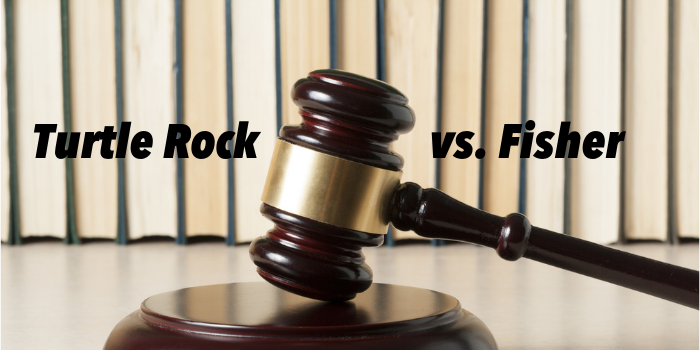Last year, the Arizona Court of Appeals decided the case of Turtle Rock III Homeowners Association v. Fisher, resulting in a landmark ruling with the potential to have a major impact on an Arizona association’s ability to assess and collect fines.
In its ruling, the Court of Appeals held that an association must:
- Promulgate a schedule of fines prior to imposing said fine.
- Prove damages to obtain judgement of any fines.
Background
In this case, the homeowner, Ms. Fisher, received fines for maintenance violations in 2014-2015 for storing items in front of windows visible to neighbors while neglecting to replace damaged blinds.
By the time the issue reached trial court, the HOA claimed that Fisher had accrued $9,165.25 in monetary penalties resulting from $25.00 per day fines. The trial court ruled in the HOA’s favor, issuing an injunction to force Ms. Fisher to tidy up her home and repair the window blinds. It also awarded the HOA monetary damages for the accrued fines but reduced this amount to $3,850.00.
While Turtle Rock III HOA was successful in the trial court, the homeowner appealed. The homeowner maintained that the HOA presented no evidence of a written schedule of fines, and that the fines were unreasonable and inconsistent with A.R.S. § 33-1803(B).
This case highlights the importance of having a written fine schedule for violations of an association’s CC&Rs, which the members have been provided notice of, before fines are imposed and producing that written fine schedule at trial. It also emphasizes that the fines imposed must be reasonable and raises the specter that an HOA will have to prove actual damages to obtain a judgment for fines against a homeowner.
To obtain a copy of this case, click here.
Ruling
In October 2017, an Arizona appeals court ruled that an HOA must first publish and notify members of its schedule of reasonable fines before they can legally fine a resident for a CC&R violation. The Court found that attempting to levy monetary fines without a properly adopted and published fine schedule is unreasonable and, even if an association has a validly adopted fine schedule, the association still has the burden of proving damages. The appellate court then reversed the trial court’s award of monetary penalties to the HOA, but upheld the injunction requiring Ms. Fisher to perform the specified maintenance and repairs to her property.
The appeals court also reversed the award of attorney’s fees to the HOA and made each party responsible for their own legal expenses.
Impact
Under this ruling, it would be difficult for HOAs to levy fines for violations of an association’s CC&Rs because the HOA would need to meet the following minimum requirements in order to assess monetary penalties/fines in a way that complies with both the Planned Communities Act and this case:
- The owner, occupant, or guest must be in violation of the declaration, bylaws, and/or rules;
- The association must provide the homeowner with notice and opportunity to be heard prior to levying a penalty/fine;
- The monetary penalty/fine must be reasonable;
- To be valid, the monetary penalty/fine must be properly adopted, and the members must be provided notice of the penalty/fine prior to imposition; and;
- The association must prove damages to obtain a judgment against the homeowner.
Appeal to Supreme Court and Current Status of this Case
The HOA appealed the case to the Arizona Supreme Court. In its petition, the HOA argued that there is no statutory requirement that an HOA adopt a fine policy or a fine schedule, or that a fine schedule be published to the members prior to imposing the fine – only that the homeowner be given notice and an opportunity to be heard before the board imposes a monetary penalty for violating the governing documents, and that the penalty be reasonable.
In support of this position, the HOA asserted that it would be impossible for an HOA to come up with an exhaustive list of every possible type of violation that might occur, or to determine in advance what a reasonable fine would be for each possible violation because the specific nature, frequency, and magnitude of the violation is not yet known.
The HOA also argued that the statute specifically allows HOAs to levy monetary penalties under the statute, rather than damages, because most violations do not create readily measurable damages, and therefore, would be difficult to prove.
While the Arizona Supreme Court did not overturn the Court of Appeals’ decision in this case, it did order the case “depublished”. This means that the Court of Appeals’ ruling remains in effect, so Turtle Rock III HOA will not receive any of the monetary penalties it assessed against Ms. Fisher. However, the ruling will only apply to this specific case and cannot be cited as legal precedent in any other case.
In other words, Turtle Rock III Homeowners Association v. Fisher is not the established law of Arizona on monetary penalties and is not binding on any court that may decide these same issues in the future. At the same time, it also does not prevent an Arizona court from making a similar ruling in another case.
Conclusion
As things stand as of this writing, Turtle Rock III is a one-off case that only affects one HOA’s ability to get a judgment for fines against one homeowner and is not good legal authority upon which other cases will be decided.
However, since the rulings in this case were not overturned by the Arizona Supreme Court, it is likely that other homeowners will make similar arguments in the future to avoid paying HOA fines and some courts may rule in a similar fashion, which could make it difficult for HOAs in Arizona to effectively levy fines for violations of their governing documents.
In light of this, here are some recommendations and suggestions for HOA boards to consider:
- Adopt a written fine policy that includes a schedule of fines and make sure that the members have notice of it by sending them a copy, posting it on the HOA’s website, including it in newsletters or eblasts, etc.
- An HOA should refrain from posting fines to a homeowner account before the opportunity to respond to violations has expired.
- Have the association’s attorney review any current or proposed fines to ensure they are reasonable and make any necessary changes or amendments.
- Try other alternatives for gaining compliance and/or enforcing violation penalties, such as meeting with the violating homeowner to suggest helpful remedies, mediating, or filing a complaint with the Arizona Department of Real Estate against the owner.
- As a last resort, the association can seek injunctive relief against an owner via lawsuit.
For additional information and/or to obtain legal advice, HOA boards should consult their legal counsel concerning the establishment of monetary penalties, the promulgation of written fine schedules, and/or the collection of monetary penalties from a homeowner.








This is good for owners and will make HOA boards look at alternatives to fines. Fines make poor people poorer or force them to comply even when something is unjust.
One day I hope an HOA matter can get to the supreme court. There is so little choice in housing now, and certain restrictions are so consistent, that we are all forced to give up even our constitutional rights that we don’t really want to give up.